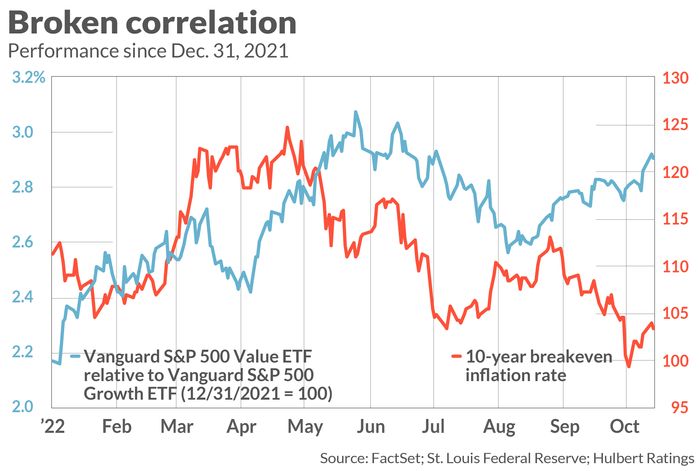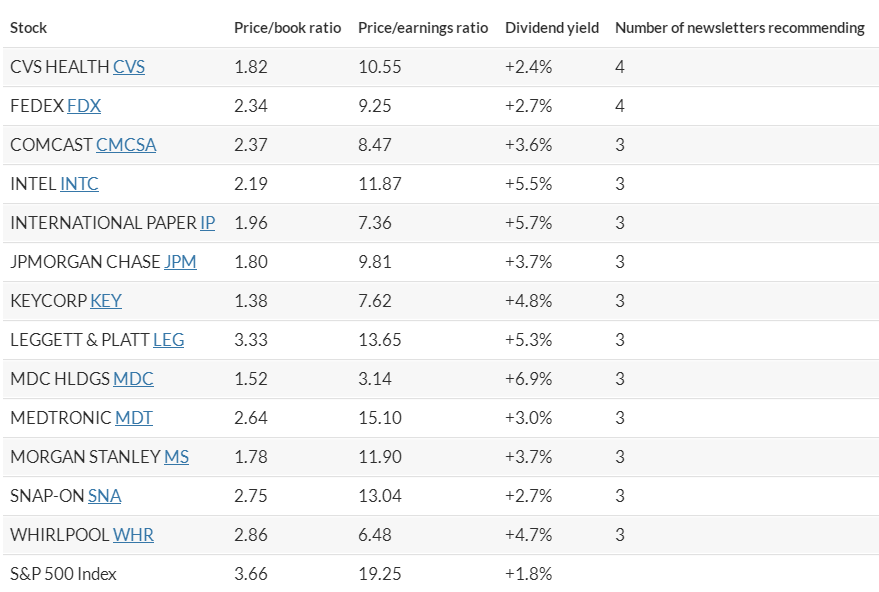Value stocks have broken a correlation with inflation expectations, suggesting they have staying power.
Value stocks over the past two months have become even more compelling investments.
Value stocks significantly outperformed growth stocks in the past century, though there have been long stretches that reversed the trend, including the last decade. Growth’s outperformance in recent years means value stocks are now relatively cheaper than at any other time in U.S. history. (Value stocks can be defined as having low prices relative to their net worth. For growth stocks, it’s the opposite.)
Many advisers argued that cheap valuations alone made value stocks compelling bets to once again outperform growth. But they still had to battle the widespread Wall Street narrative that value tends to beat growth only in rising-inflation environments. While this narrative supported the value-stock thesis last year and this year, it made value stocks’ relative strength vulnerable to any decline in inflation expectations.

What happened? My hunch is that an increasing number of investors on Wall Street came to realize that there is no good theoretical reason to expect value stocks’ relative strength to be correlated with inflation. (I devoted a column earlier this year to this absence of a good theoretical foundation, and I refer you to it for a fuller discussion.)
Wall Street’s newfound realization may have come just in time to rescue value stocks from declining inflation expectations. Though high inflation is proving less transitory than many, including the Federal Reserve, initially thought, most believe that inflation will be slowing soon. The consensus of “America’s top business economists,” as polled by Wolters Kluwer’s Blue Chip Economic Indicators, is that the Consumer Price Index will be 3.9% in 2023.
The easiest way to place a diversified bet on value stocks’ relative strength is with exchange traded funds. One with the lowest expenses is the Vanguard S&P 500 Value ETF VOOV, with an expense ratio of 0.10%.
Highly regarded value stocks
If you want to bet on individual value securities, the following table lists value stocks that are recommended by at least three of the top-performing newsletters my firm monitors. To qualify for this table, their price-to-book and price-to-earnings (P/E) ratios had to be lower than those of the S&P 500 SPX, and their dividend yields had to be higher. (The ratios and yields in the table are from FactSet.)

Comments